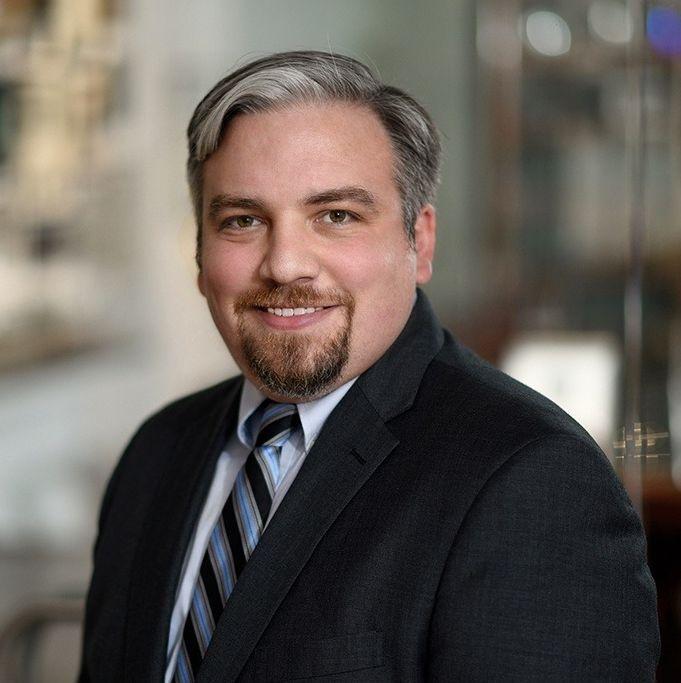About the program
The Forensic Psychiatry Fellowship at the Menninger Department of Psychiatry and Behavioral Sciences at Baylor College of Medicine is a full-time one-year training program that accepts two fellows per year. Our program is an Accreditation Council of Graduation Medical Education accredited fellowship. Fellows will receive thorough training in civil, criminal, correctional/carceral, and other legal aspects related to the practice of forensic and general psychiatry. This training will be through seminars learning the theory, law, and background for practicing psychiatry while learning and demonstrating the practical clinical and consultative skills inherent to expert forensic psychiatric practice. Additionally, fellows will learn skills related to advocacy and public policy. By the end of training, fellows will be well equipped to practice forensic psychiatry at the highest level and prepared to successfully pass the American Board of Psychiatry and Neurology’s Forensic Psychiatry certification exam.
Our program's mission is to train exceptional forensic psychiatrists that provide high-quality care and that embody high standards of ethics, leadership, scholarship, and professionalism. We intend for our fellows to become physician leaders who excel in the interface between psychiatry and the law with an eye towards advancing the cause of forensic psychiatry, and psychiatry as a whole, in Texas and the larger United States.
Admissions
Requirements:
Applicants must have successfully completed at least four years of training in general or child psychiatry and demonstrate a dedication to the practice of forensic psychiatry as a career and be licensed to practice medicine in the state of Texas by the time of the start of fellowship.
Salary, policies and benefits:
Please refer to BCM’s GME website for all relevant information related to residents and fellows. Also, fellows will receive a handbook at the start of fellowship containing all policies, regulations, and other relevant information.
How to apply:
Prospective candidates, please note that we are still actively recruiting for one fellowship position for AY 26-27. To apply, please email your CV, personal statement, MSPE, medical school transcript, deidentified forensic or other representative writing sample(s), three letters of recommendation (one from current training director), and USMLE/COMLEX scores to mary.connor@bcm.edu.
Director's Message

Welcome, my name is Jeffrey Khan, MD and I am the training director for the Forensic Psychiatry Fellowship here at BCM. I invite you to take a look around the website to find out more information about our fellowship program, the psychiatry department, and BCM in general. In this message, I’d like to focus on how much Baylor has meant to myself as someone who has trained and worked here and the community impact that BCM has on our larger Houston and Texas communities. I believe that our fellowship program provides an exceptional educational opportunity for fellows that is an integral part of the community that you would be joining.
I have been at BCM since 2013 when I matriculated as a MS1 before continuing in psychiatry residency training here. I returned to BCM in 2018 to start as faculty and have been here ever since. At each step of the way, I felt that the people here have been strongly invested in my education and growth, along with that of my colleagues. I can say without a moment’s hesitation that I would not have had the opportunities available to me without the support, mentorship, and education by so many dedicated people at BCM. My aim throughout my career and now in this fellowship director position is to continue that tradition for the fellows in our program.
As many of you already know, Texas has significant mental healthcare shortages, particularly for those who are involved with the legal system. Our fellowship resembles the depth and breadth and outstanding opportunities that this city provides. You will be able to work and train on the front lines of addressing this unmet need. Through rotations at the Harris County Jail in partnership with The Harris Center, fellows will work with persons who are incarcerated and in need of treatment, expert evaluations, and forensic services like restoration to competency. Additionally, our fellows work with veterans through our partnership with the Michael E. DeBakey VA Medical Center in both hospital and court based evaluations and treatment. Our fellows also have the opportunity to conduct evaluations and consultations at the world-renowned Menninger Clinic and at Baylor’s department outpatient clinic. As someone who has personally experienced the education and work at each of these sites, I can confidently attest to the excellence of the educational experiences and the value of the work.
Lastly, as a native Houstonian, a large benefit of training at BCM is living in Houston. It is definitely a foodie’s paradise whose dining scene is frequently represented in media. Sports lovers can also rejoice in having numerous college and professional sports teams, including the powerhouse Houston Astros and exciting up and coming Texans and Rockets teams with professional men’s and women’s soccer teams, the Dynamo and Dash, and even professional rugby, cricket, minor league baseball, non-NFL football, and the list goes on and on. We also have a nationally recognized theater district, museums, NASA, and (probably) a different festival or convention each week of the year. Being on the gulf coast, there is also easy access to the beaches of Galveston just 45 minutes away while the Piney Woods of east Texas and hill country of central Texas are all within an easy driving distance. Being centrally located and with two major international airports, it is also easy to get to anywhere else in the country (and world).
I hope that this has helped provide a glimpse of our program and the city which we all are so proud to be a part of. Please take a look around our website for further information and do not hesitate to reach out to myself or any of our other faculty or trainees to find out more.
Looking forward to talking soon,
Jeffrey Khan, M.D.








